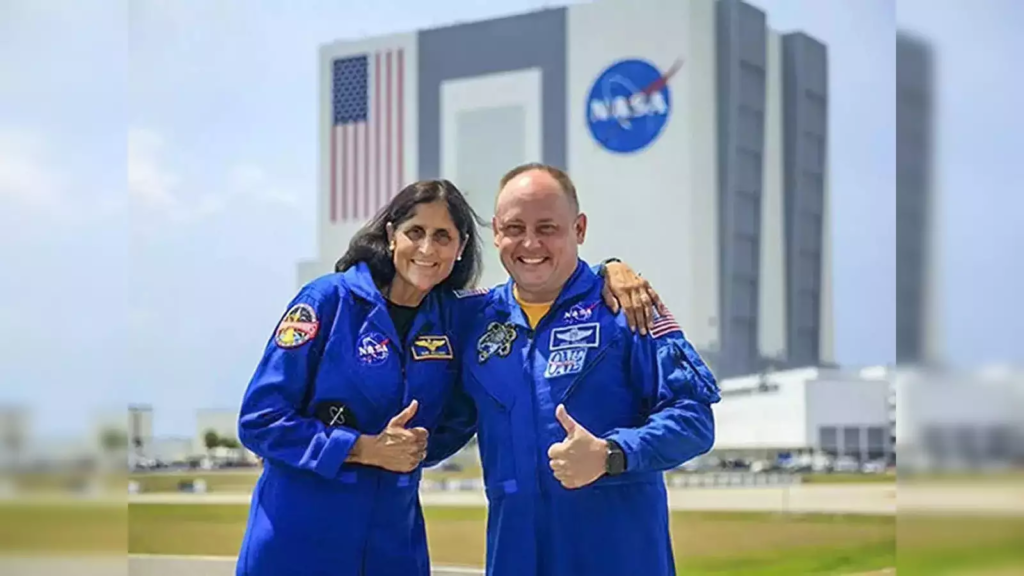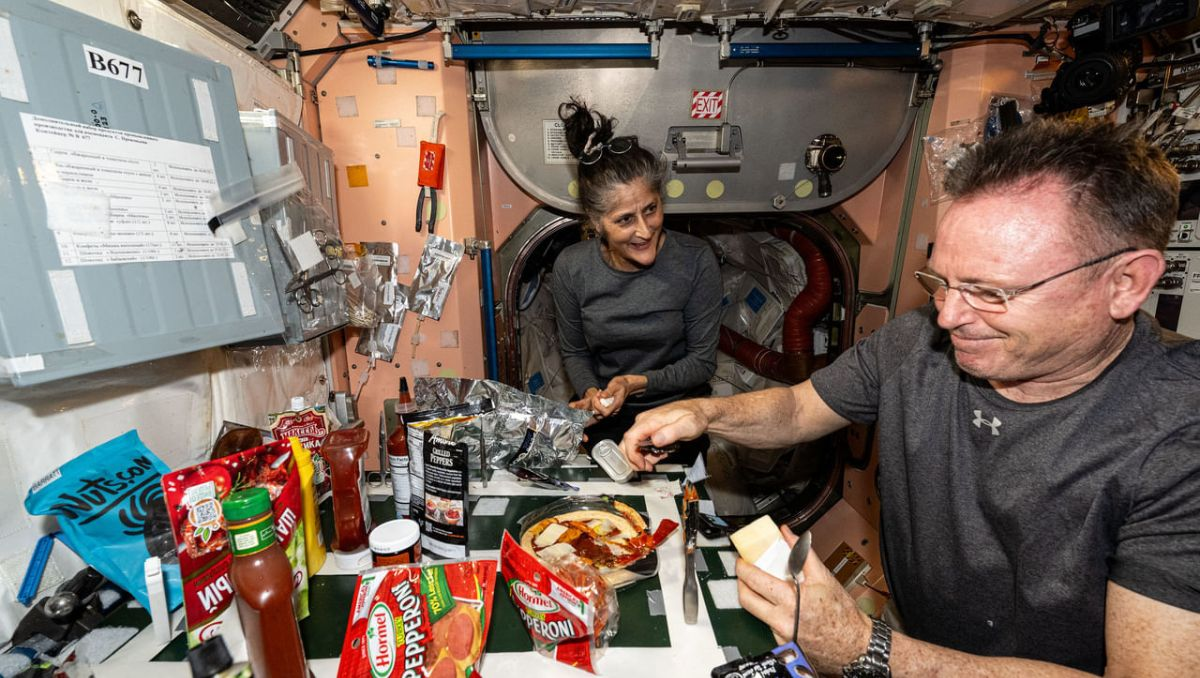The International Space Station (ISS), a marvel of human engineering and scientific ambition, has been the home of astronauts from various space agencies for decades. Recently, however, concerning news about astronaut Sunita Williams, one of NASA’s most renowned spacefarers, has sparked global attention.
Reports suggest that Williams and her fellow astronaut Butch Wilmore are facing a dwindling supply of fresh food aboard the ISS, raising questions about their health and well-being.
Limited Fresh Food Supplies on the ISS
Life aboard the ISS is marked by unique challenges, including the logistics of food storage and preparation. While NASA assures the world that the astronauts have adequate nutrition, the scarcity of fresh fruits and vegetables is an undeniable reality.
Fresh food on the ISS is typically replenished every three months through resupply missions. However, as weeks pass, the availability of fresh items diminishes, leaving astronauts with packaged or freeze-dried alternatives.
Read : From Successful Entrepreneur to Miss Universe 2024: Journey of Victoria Kjær Theilvig
Reports indicate that Williams and Wilmore have been consuming a variety of pre-packaged meals, including pizza, roast chicken, shrimp cocktails, breakfast cereals, and powdered milk.
These meals are calorie-dense and designed to meet the astronauts’ daily nutritional needs. However, the absence of fresh produce in their diet has raised concerns about potential deficiencies, even though NASA insists their food intake is sufficient.
Concerns Over Sunita Williams’ Appearance
Speculation about the astronauts’ health gained traction when recent photos of Sunita Williams were released, showing her with a thinner frame and sunken cheeks. The images sparked widespread concern, with many questioning whether the lack of fresh food is contributing to weight loss.
Experts, however, have clarified that weight changes in space are often due to the body’s natural adaptations to microgravity rather than malnutrition.

Williams herself dismissed the rumors, attributing her appearance to the redistribution of body fluids in the absence of gravity. NASA specialists have also emphasized that any perceived weight loss is not due to inadequate provisions, as the ISS stocks 1.7 kilograms of food per astronaut per day, tailored to individual nutritional requirements.
The Science of Eating in Space
The unique environment of the ISS requires specific adjustments in food storage, preparation, and consumption. All food is prepared on Earth and sent to the station in a preserved form, such as freeze-dried packets or vacuum-sealed containers. Fresh fruits and vegetables are part of the initial shipment but are quickly consumed due to their limited shelf life.
Astronauts prepare their meals using a combination of water and reheating processes. The ISS lacks traditional cooking methods, so food is either hydrated or heated before being served on magnetized trays to prevent it from floating away. The station also employs advanced systems to recycle water, including turning urine and sweat into potable water, ensuring the crew’s hydration needs are met.

While these measures are effective, the lack of fresh produce presents a challenge. Fresh fruits and vegetables provide essential vitamins and nutrients that cannot always be replicated in packaged alternatives. Long-term reliance on such a diet may lead to concerns about bone density, muscle mass, and overall health, which are already impacted by extended stays in microgravity.
The Psychological Impact of Diet in Space
Food plays a significant role not only in physical health but also in psychological well-being. The monotony of pre-packaged meals can take a toll on astronauts’ morale, making the occasional delivery of fresh food a highly anticipated event.
For astronauts like Williams and Wilmore, who have been aboard the ISS for five months, the lack of dietary variety could contribute to feelings of isolation and homesickness.
NASA recognizes the importance of maintaining astronauts’ mental health and has invested in creating a diverse menu that includes comfort foods like pizza and shrimp cocktails.
These meals provide a sense of normalcy in an otherwise extraordinary environment. However, the absence of fresh produce remains a limitation that underscores the challenges of sustaining long-term human presence in space.
NASA’s Response to Health Concerns
NASA has been quick to address concerns about the astronauts’ health, reiterating that their nutritional needs are being met. The agency’s monitoring systems track the astronauts’ weight, muscle mass, and overall health, ensuring any potential issues are addressed promptly. Specialists have pointed out that while the photos of Williams might raise eyebrows, they do not indicate any immediate health crisis.

Additionally, NASA has emphasized that the ISS is well-stocked for extended missions, with provisions that could last beyond the planned duration. The agency continues to refine its methods for food preservation and resupply, learning valuable lessons for future missions to the Moon, Mars, and beyond.
Preparing for Long-Duration Missions
The challenges faced by Williams and Wilmore offer a glimpse into the complexities of sustaining life in space for extended periods. As NASA and other space agencies prepare for missions to Mars, which could last several years, addressing the issue of fresh food supply becomes increasingly critical.
Developing innovative solutions, such as growing produce aboard spacecraft or using advanced preservation techniques, will be essential for ensuring the health and well-being of future astronauts.
Research into space farming is already underway, with experiments on the ISS exploring the feasibility of cultivating crops like lettuce, radishes, and wheat in microgravity. These efforts aim to create a sustainable food source that can supplement pre-packaged meals and provide fresh options for long-duration missions.
The current situation on the ISS highlights both the achievements and the challenges of human space exploration. While NASA’s assurances offer some relief, the scarcity of fresh food and its potential impact on astronauts like Sunita Williams remind us of the limitations of existing systems.
As humanity looks toward deeper space exploration, addressing these challenges will be crucial for ensuring the success and safety of future missions.

